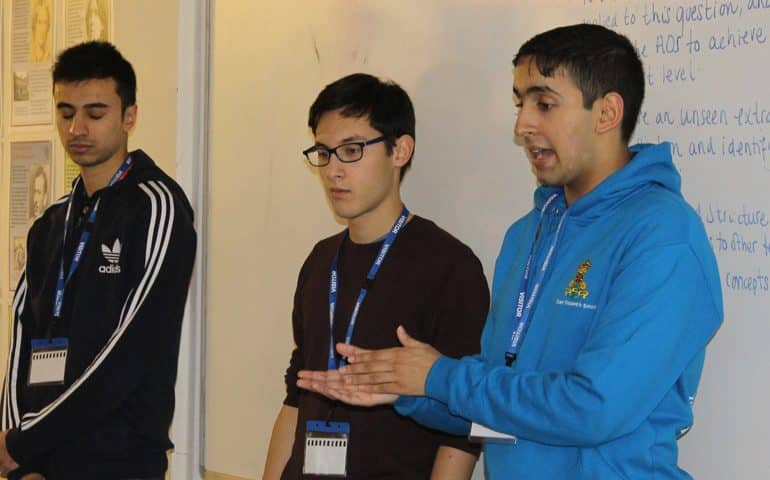Take it from us: tips for future medics

Old Elizabethan Shiras Patel returned to the School with two fellow Imperial College medical students to advise boys on university applications – and to get a little help with their own studies in return.
Shiras (OE 2009-16) spoke to about 45 boys at QE’s MedSoc (medical society), starting by explaining: “One medical offer is enough; that’s all you need.” The practical advice from Shiras and his fellow students covered how to prepare a good application and stressed the importance not only of boys recording activities such as work experience, voluntary work and involvement in team sports, but, crucially, of explaining what they had learned from these activities. They gave boys information about UK Clinical Aptitude Tests used by university medical and dental schools. And they also had tips on choosing where to go, looking into the nature of courses at different universities.
“The key points were that they should start preparing everything early, and that there are a variety of support systems and events available at QE to aid them with their application,” Shiras said.
The Imperial trio made use of their visit to collect data for a study project. “We are conducting research into whether education had an impact on the opinion of young adults regarding healthcare,” Shiras explained. “It was part of our First Clinical Attachment module, and we need to analyse the data and present our research, including how we would improve it in the future if we were going to repeat the survey.”
The boys attending the event were mostly from Years 11 and 12. QE has a strong record of boys becoming Medics: in 2016, 30 leavers were offered places on Medicine, Dentistry or Veterinary Science degree courses.
“It was a great pleasure to be back to QE, and encouraging to see how many people were interested in studying Medicine. We hope that everything we said was useful to them, and wish all the boys success with their upcoming applications. I must thank the MedSoc for helping me organise the event and thank all the boys who attended, as they provided invaluable data for our project,” Shiras concluded.
